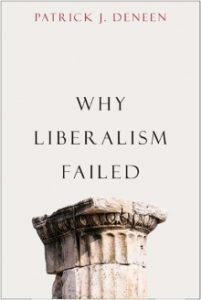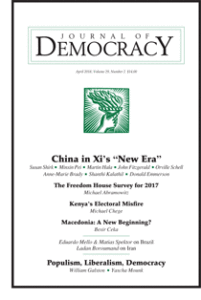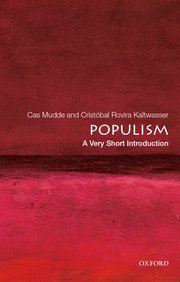 In his Why Liberalism Failed, Patrick Deneen, a professor of political science at Notre Dame, targets some genuine weaknesses of liberalism, sometimes with considerable eloquence, but never succeeds in presenting a coherent alternative, argues Marc F. Plattner, Editor of the Journal of Democracy. Nor does he make it clear which “achievements” of liberalism he is prepared to accept, he writes for the Washington Monthly:
In his Why Liberalism Failed, Patrick Deneen, a professor of political science at Notre Dame, targets some genuine weaknesses of liberalism, sometimes with considerable eloquence, but never succeeds in presenting a coherent alternative, argues Marc F. Plattner, Editor of the Journal of Democracy. Nor does he make it clear which “achievements” of liberalism he is prepared to accept, he writes for the Washington Monthly:
Deneen portrays the contemporary world as having been utterly transformed by the triumph of liberalism. There is one sense in which this may be accurate: global capitalism, arguably an outgrowth of liberalism, has indeed reshaped life almost everywhere. But liberalism in its political form, based on the protection of individual rights and government by consent, has not been nearly so successful, despite the great strides it made in the last quarter of the twentieth century.
 “Authoritarians of one sort or another continue to rule a considerable portion of the world, and today their power and influence appear to be ascending, while the liberal democracies are in retreat,” notes Plattner, Co-Chair of the Research Council of the National Endowment for Democracy’s International Forum for Democratic Studies.
“Authoritarians of one sort or another continue to rule a considerable portion of the world, and today their power and influence appear to be ascending, while the liberal democracies are in retreat,” notes Plattner, Co-Chair of the Research Council of the National Endowment for Democracy’s International Forum for Democratic Studies.
Mere tinkering won’t alleviate the deep rot in the liberal project, Deneen insists. He says we need to envision a future after liberalism, where local, preferably religious communities tend to the land and look after their own. These groups would cultivate “cultures of community, care, self-sacrifice and small-scale democracy,” Jennifer Szalai writes for the Times.
There’s an obvious rebuttal [to Deneen’s thesis], says the Washington Post’s Christine Emba:
“But wait, look — liberalism is working.” As the system’s champions never fail to remind us, liberal economies are the richest, their standards of living the highest. Innovation advances, and we can be who we want to be. And besides, communism and fascism, the only two pretenders to liberalism’s ideological throne, bloomed briefly but have since fallen away almost completely. Didn’t the best idea win?
 Efforts to advance democracy and to counter populism are marred by the hyper-liberalism prevailing in Western societies, argues British commentator John Gray.
Efforts to advance democracy and to counter populism are marred by the hyper-liberalism prevailing in Western societies, argues British commentator John Gray.
“Liberals who rail at populist movements are adamant that voters who support them are deluded or deceived. The possibility that these movements are exploiting needs that highly individualist societies cannot satisfy is not seriously considered,” he writes for the Times Literary Supplement:
In the liberalism that has prevailed over the past generation such needs have been dismissed as atavistic prejudices, which must be swept away wherever they stand in the way of schemes for transnational government or an expanding global market. This stance is one reason why anti-liberal movements continue to advance. Liberalism and empiricism have parted company, and nothing has been learnt. Some of the strongest evidence against the liberal belief that we learn from our errors and follies comes from the behavior of liberals themselves.







